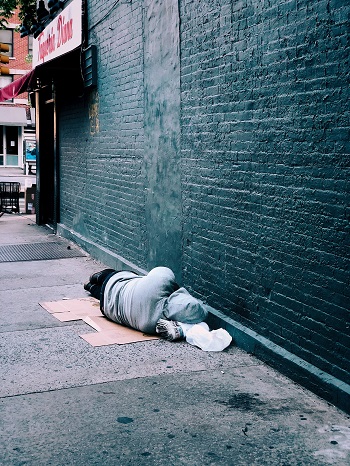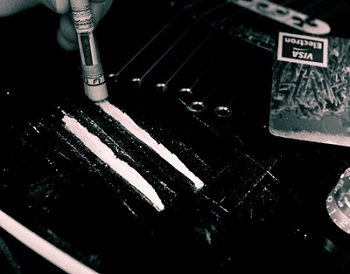
COVID-19 Pandemic Measures Bring an Epidemic of Substance Abuse
While the COVID-19 pandemic has affected people worldwide, it has deeply impacted those dealing with substance addictions. Experts have consistently reported a pattern of addictions rising during natural disasters and pandemics. Are COVID measures such as social isolation doing more harm than good to those struggling with addictions?
Short periods of isolation have a negative impact on mental wellbeing. They can lead to anxiety, depression, and sleep disorders. People with pre-existing mental illnesses have seen their psychological symptoms worsen during isolation, with some turning to illicit substance use as a way to cope. Those already abusing substances have become increasingly dependent on them. Some individuals are struggling with both mental illness and substance addiction, which makes isolation even more difficult.
Jeffery Wardell, a clinical psychologist and professor at York University, and former researcher at The Centre for Addiction and Mental Health (CAMH), explains:
“The pandemic is putting a great deal of stress on people, especially certain individuals like those with children or those dealing with depression and other mental health issues, and some individuals may be at risk for turning to alcohol (or other drugs) as a strategy to cope with this distress.”
For some, using substances is a way to feel a sense of control over one’s life. Dylan (name changed for anonymity), a Toronto resident dealing with addiction, shares: “You just want to feel something. What else is there to do when you are trapped at home because you lost your job? You feel bored and hopeless, so you crave that cocaine high. You reach for it and forget about everything for a while.”

COVID-19 has also exacerbated the opioid crisis with a 38.2% increase in opioid-related deaths in the first weeks of the pandemic in Ontario. One study identified a trend of opioid-related deaths occurring more frequently among those who use drugs alone, those who are outdoors, or those staying in motels during the pandemic. Physical distancing measures, important for limiting the spread of COVID-19, may have inadvertently reduced access to safe spaces for drug use. This study also found that opioid related deaths are occurring more frequently in immigrant and racialized communities, suggesting that pandemic responses are disproportionately impacting these populations.
In addition, conflicting messages have made it even harder for people to cope with their addictions. Before the pandemic, individuals were cautioned to use substances in the company of others as a harm reduction strategy to minimize the risk of overdose and contaminated supply. Since the start of the pandemic, there have been contradicting messages on this strategy from health officials in efforts to stop the spread of COVID-19.
While many use substances as a coping mechanism, this often backfires. Individuals who are stressed or anxious may turn to drugs or alcohol to numb their emotions and escape their reality, however this relief is temporary and substances can heighten fear and anxiety in the long term.
It is important that people develop healthy coping strategies which enable them to handle life’s challenges, even major issues such as a global pandemic. When people with a history of substance abuse feel they are unable to cope, there is an increased chance of relapse. Drug users are doubly vulnerable right now, both due to a greater chance of relapse and increased drug use, as well as a higher risk of COVID infection and the serious health consequences which can result.

Support groups and 12-step meetings can assist individuals with developing different coping strategies, as opposed to turning to substances. However, a consequence of social distancing is that health care, social services, and drug supply chains have all been impacted. Rehab centres have moved online, and the number of people excluded from rehab services has increased. Many are either unfamiliar with the technology or lack access to a computer or the internet. Of particular concern is the number of services which have been cancelled. Outreach services, walk-in support services, withdrawal services, consumption sites, and shelters have been shut down or cancelled as precautionary measures imposed by health officials to reduce the spread of COVID-19.
Julia, who has recovered from substance addiction, explains: “My support group is not much of a help now. We still hold our weekly meetings virtually, but half the group doesn’t show up because some have lost their jobs and can’t afford to pay internet. They just don’t have these resources anymore and have gone back to dealing on the street. Others don’t show up because they have relapsed since the pandemic and left the support group.”
How can individuals cope when these programs are disrupted, and what can be done to support them? Wardell provides his input:
“As a community we need to make people aware of the potential harms of drinking alcohol or using drugs to cope with stress, and provide people with information about alternative coping strategies, increase supports in the community, and increase access to treatment for alcohol and other substance use problems”.
– Fatmah Jahim, Contributing Writer
Image Credits:
Feature: Mikail Duran at Unsplash, Creative Commons
First: Jon Tyson at Unsplash, Creative Commons
Second: Anton Khomutenko at Flickr, Creative Commons



